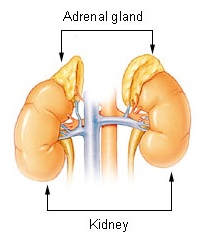- To Change Your Mind - Details Matter
ADHD Insights: Adrenal, Sodium, Trace Elements
ADHD Insights: Immunity and IgG Controversy
September 13, 2012ADHD Insights: Medications on Straight Talk Radio
September 15, 2012Adrenal Function: Relevant for ADHD Understanding
Trace Elements FYI
On Fridays I'll be adding postings here at CorePsych Blog on the relevance of trace element testing, and even deeper step after immune system dysregulation and IgG testing. TMA, Tissue Mineral Analysis, as I've reported elsewhere, is the new NCIS of office evidence in refractory cases. Those 20% of significantly refractory cases that don't respond to IgG testing and correcting the diet do most often, 90% of the time, show significant improvement with trace element corrections.
Quite honestly, I'm surprised, with my traditional training, to find myself recommending this evaluation process – but the evidence in my office shows clear positive response to correcting these evidence based trace element imbalances if measured.
Trace element measurements provide useful biomedical information for those who simply don't respond well to stimulant meds. Often these non-responders suffer with a variety of measurable, correctable, comorbid conditions.
Trace Element Application: Sodium and Adrenal Function
Trace elements loom dramatically more into focus when we consider the fact that 85% of the brain is composed of glial cells, and those glial cells communicate their gliotransmission through ion channels downstream from balanced trace elements. Na, Sodium is but one of those several relevant channels – as Doug Fields reports – outside the Neuron Doctrine.
Sodium deficits are related to abnormalities
in membrane permeability. Lowered membrane
permeability is associated with decreased
synaptic impulse transmission and has been
found in under active or depressed groups.[i][i] Stevens JD: Membrane permeability in schizophrenia.
Dis. Nerv. Syst. 25, 21, 1964.
I know ADHD is not schizophrenia, but let's consider the relevance of membrane permeability a bit further as it relates to sodium and adrenal function.
Sodium and Adrenal Function
This posting should not encourage a cookie cutter approach to refractory ADHD, like guessing the sodium level and using more salt, but hopefully demonstrates additional useful biomarkers to correct missed imbalances.
These remarks from this Hyperactivity reference by Dr Paul Eck that drives more to the point on challenges with ADHD/Executive Function, as related to sodium trace element imbalances:
Hyperactivity is much more prevalent in a child because the child begins life as a fast oxidizer. Fast oxidizers have higher levels of sodium and potassium and lower levels of calcium, magnesium, zinc and copper than a slow oxidizer.
Normally speaking, under stress, tissue sodium and potassium levels rise. Any agent, e.g., an infection, which is capable of eliciting a defensive response (increased metabolic rate) makes one increasingly susceptible to hyperactive behavior. As one's body adaptation mechanisms become increasingly unable to compensate, additional metabolic dysfunctions become manifest.
The message: if these challenged activities with Sodium and Adrenal Function do occur, and can effect the ADHD response, why not measure them?
So many adults and children with refractory ADHD – ADHD that doesn't respond predictably to reasonable medical intervention – suffer with varieties of these trace element imbalances that effect hormonal and neuronal, indeed synaptic neurotransmission [through glial activities] – so interestingly described by Fields in The Other Brain.
cp
Related articles







